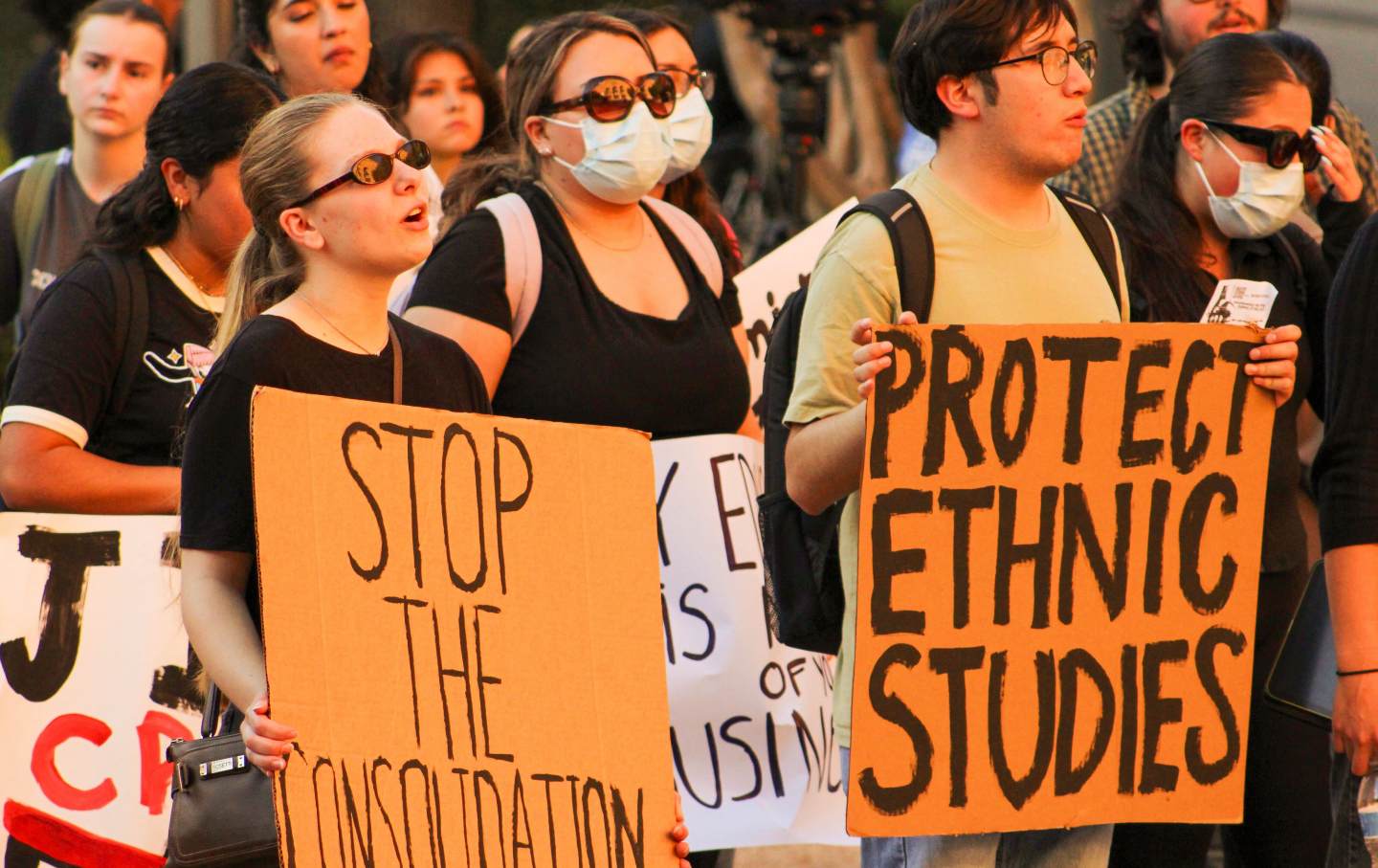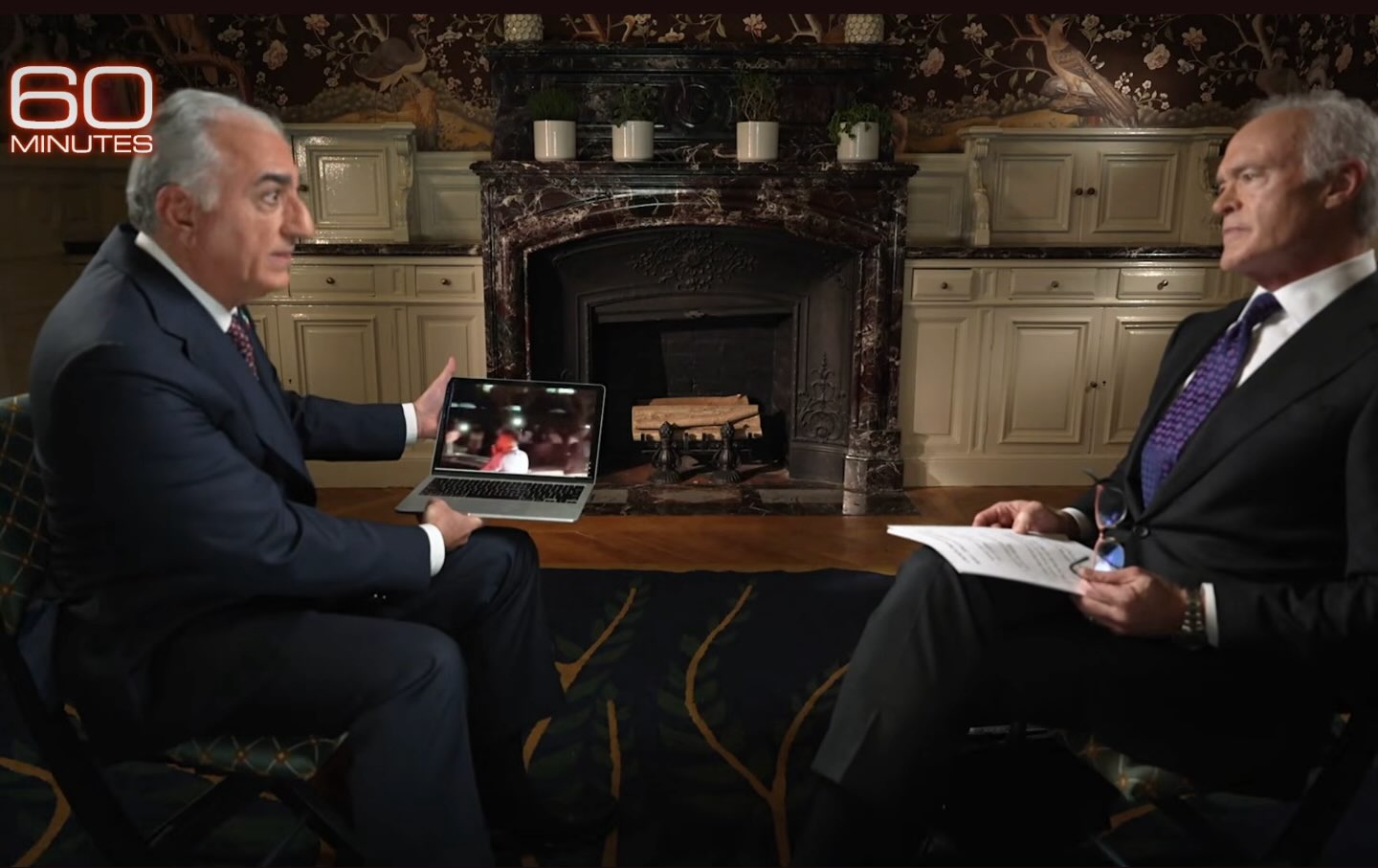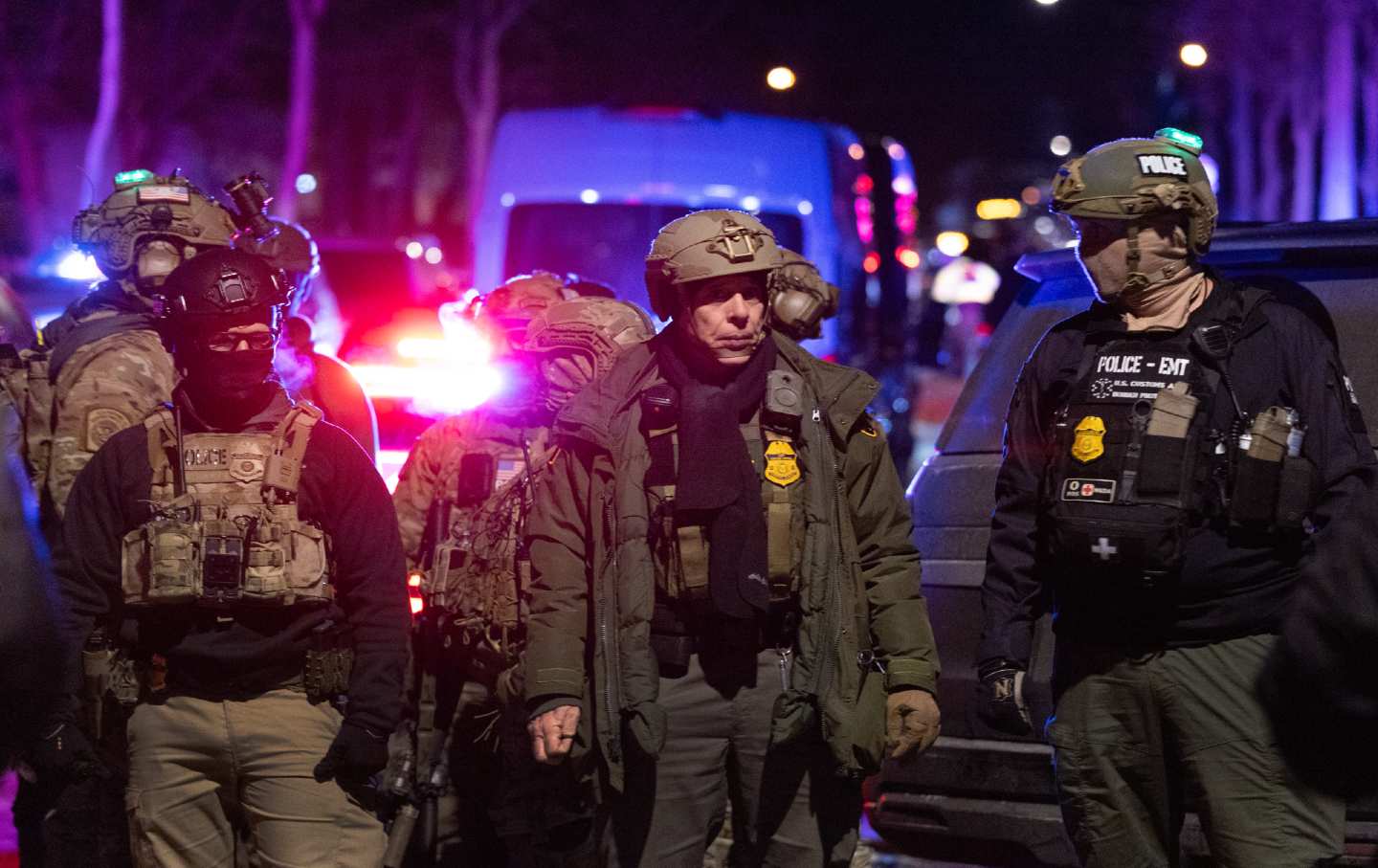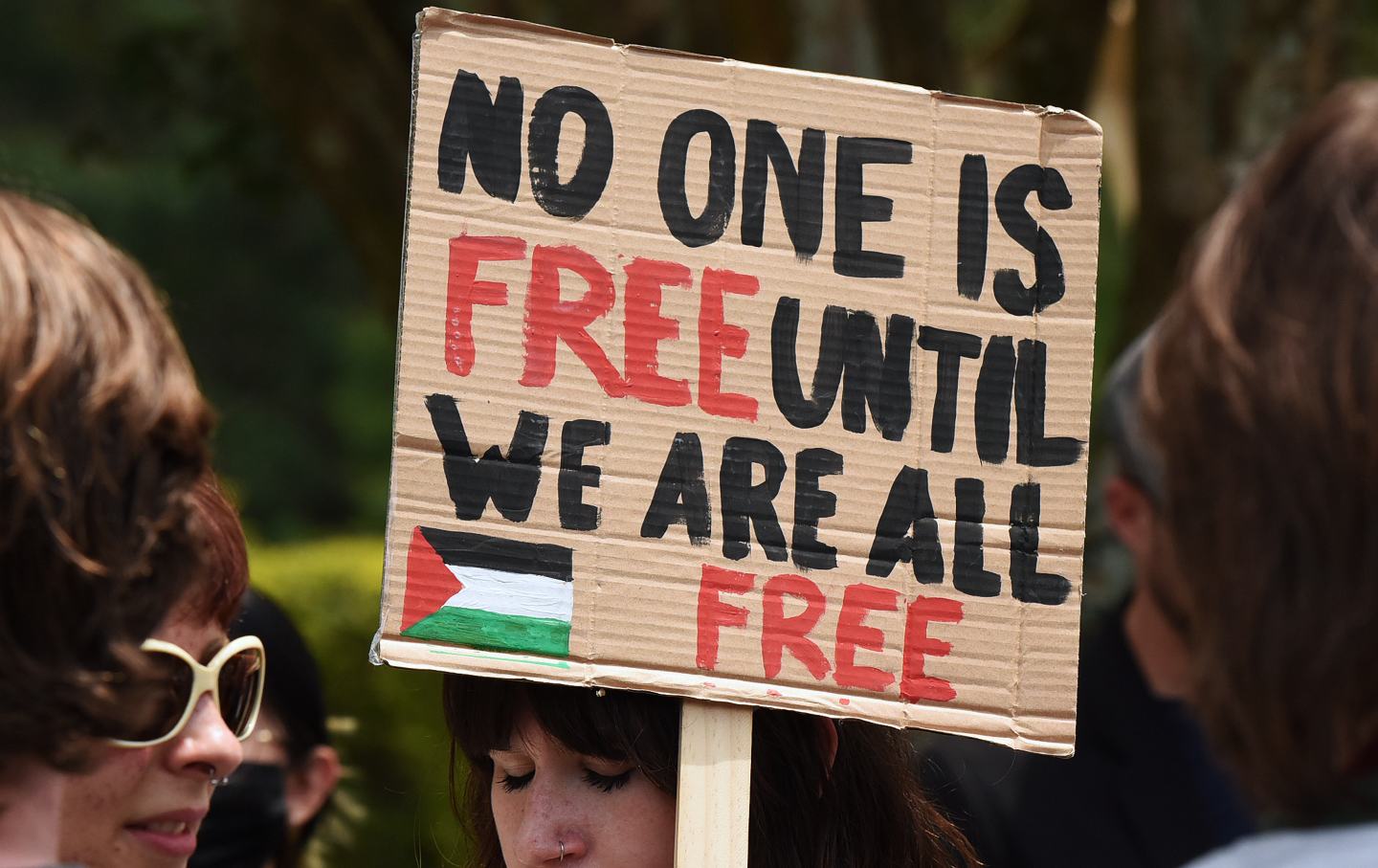Surviving Hate Through Queer Kinship
Anthropologist Esther Newton and artist Holly Hughes tell Laura Flanders how they’ve flourished through decades of culture wars.
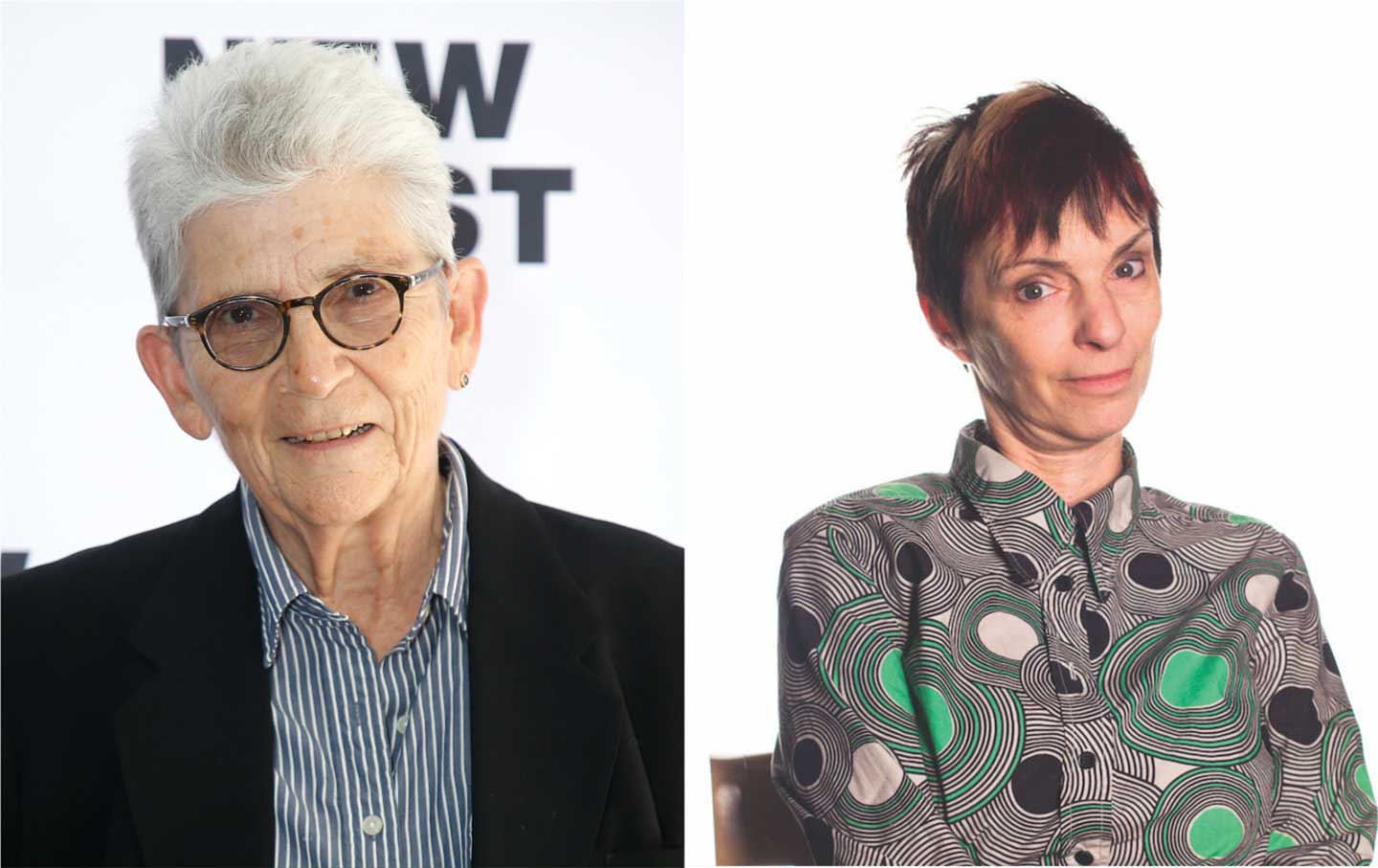
Esther Newton and Holly Hughes are cultural icons and makers of history. Esther Newton’s 1972 book Mother Camp: Female Impersonators in America changed anthropology forever. It was the first major anthropological study in the United States of what would now be called an LGBT community. Holly Hughes, a writer and performer, started her career at the WOW Cafe in New York City, a place that calls itself the oldest continuously operating cultural institution for queer women and trans people. In the 1990s, Hughes was one of a group of artists whose federal grants were revoked in a right-wing backlash against queer art and self-expression. The debacle over the “NEA Four,” as they were known, led to the closing of the National Endowments Individual Artists Program and an anti-obscenity pledge that grant recipients were required to sign for years afterward. They have both survived wave after wave of culture wars. As a couple for more than 30 years, they say love, community, and queer kinship are essential for all of our survival.
—Laura Flanders
Laura Flanders: Holly, how did you two meet and fall in love?
Holly Hughes: I met her at a benefit for CLAGs, the Center for Lesbian and Gay Studies. I was performing and we had a little bit of a chat afterwards at the reception. That led to a date at a coffee shop. On the first date she showed me her truck.
Laura Flanders: Oh, that’s obviously what did it. What about you Esther? How did you fall in love with Holly?
Esther Newton: I had read about Holly in The New York Times, the whole NEA Four, and I never thought I would meet her. Her performance that night just blew me away. It never occurred to me that we would get together. But she was persistent, and it didn’t take long before we did get together. And she passed the interview: She liked my truck.
LF: Esther, your work in the ’70s as an anthropologist studying queer society, what was so significant about bringing an anthropological lens to that community at that point?
EN: In the mid-’60s when I did this, homosexuals were called a psychological problem to be fixed. The starting point of anthropology is that human beings have culture, that this is our primary adaptation to the world. What was so striking about my perspective was that I was describing the culture that gay people had at that point. How the sense of belonging, the artistic production which centered around drag—nobody had done that before. And I really knew that we weren’t a problem to be solved by shrinks. Doing the work also helped me solidify my own sense of identity.
LF: When you put it that way it makes it so unsurprising, Holly, that the Right would come after this community. And its expression in the late 1980s, early ’90s, is sort of represented by you. Were you surprised at that moment, and did you understand immediately what was happening, what was at stake?
HH: So much of what happened at that time was a hysterical, unhelpful reaction to the AIDS epidemic. That was something that really fed and enabled the religious right to get purchase with these attacks, and particularly go after art forms that are not very well known. No one that attacked me or any of the other artists actually saw our work, including at the National Endowment for the Arts. I remember when I learned in the lawsuit that the entire discussion of my work is, “Holly Hughes is a lesbian and her work is very heavily of that genre.” And I thought, I don’t want to be a genre, a generic lesbian. I want to be a store-brand lesbian. But I also think what we used to call the religious right, now it’s just the Republican Party. They used this wedge issue, and some of the arguments they used 30 years ago, primarily about the fact that we were supposedly attacking children, a cabal of child pornographers and pedophiles, which is totally wrong. They’re concerned about a stigmatized group that begins to have the means to talk to a larger community. I think a certain kind of gender essentialism is part and parcel of Christian nationalism along with their racism. It’s in there. And we represent something, a way of building relationships that aren’t focused necessarily on procreation and certainly not on rigid gender roles.
LF: It’s probably very keenly felt by you right now, Esther. You’re in Florida as we speak.
EN: During this past legislative session, every week a new horrible law was coming out, that you can’t teach Black history, don’t say gay, and it was so transparent because they started with, “We have to protect these children.” Back to Anita Bryant and the 1970s, that was exactly her point of entry. “Save the children”—it was the same words. They made it go all the way up through the end of high school. They’re trying to get rid of all gender studies programs in the state colleges. It’s just sickening to see what’s happening under DeSantis’s “leadership.” It’s a disaster, not only for LBGT people. It’s scary to be here actually, and I live in a lesbian community. We’re all old, so that’s less threatening, I guess.
LF: Although if he thinks he can mess with a bunch of old lesbians, he’s in big trouble.
EN: That could be.
LF: What is so powerful about what you’ve both just said is that the strength and also the targets are actually the places of community-building, whether it’s education or performance or community. Drag story hours, they are visible magnets for queer community and inclusion. As you think about survival techniques of this culture, and the other cultures that you as an anthropologist have studied, how important are non–blood kinship connections to the survival of people, ideas, freedom, aspirations, and how do we survive?
EN: It’s critical because that’s what culture is. It’s ties between people. Traditionally primary ties were supposed to be “blood family.” Gay people have built structures outside of that, which I think is partly what’s so appealing to young people.
LF: What do they mean to you, Holly? How have you survived? It’s not easy to be an artist, let alone an individual queer artist under attack from the right.
HH: No, it’s not easy at all. I was lucky to have different kinds of communities at different moments. I am very concerned and disheartened by the attacks on trans people, and it’s disheartening to see some of it coming from feminists. Although I think a lot of the people who are described as TERFs, are not really Trans Exclusionary Radical Feminists, because they’re not feminists. They’re just exclusionary. One of the fundamental prospects or ideas in women’s liberation and in queer liberation is about dismantling biological determinism. The idea that because you have a certain set of chromosomes and a certain set of genitals, here’s your life script, here’s what you’re going to do and what you’re going to do with your body. Expanding and rethinking that is to everyone’s benefit. I’m just very worried. I have so many trans and nonbinary students and they’re so vulnerable.
LF: We’ve always been juggling the pros and cons of identity politics. Sometimes liberatory, sometimes pigeonholing. One of the territories that’s gotten contested is that word “woman.” How do you think about it, Holly?
HH: I’m presenting myself in what would be seen as a feminine way. I used to think of myself as a femme, I think of myself a little bit differently, partially because of the discourse that my relationship to that word “woman” is a little bit different. I think of myself more as effeminate. Sometimes I hear feminists talking about, they’re worried about the disappearance of the word “woman.” I think what they’re really worried about is the lack of a mass feminist movement. Language is difficult. It’s changing. I’m an older person, it’s hard to adapt. But the biggest problem in my life is not whether I’m called a “woman” or hearing “pregnant people” or “menstruating people.” It needs more articulation, and I think it’s really about feminist discourse.
LF: Esther, you want to weigh in on this?
EN: Until feminism, I always felt kind of like a female impersonator. Like it was just a role that I was forced into. Then feminism and lesbian feminism made me proud to be a woman in some sense. It was a super-exciting movement with all kinds of ideas and creativity and actions, and had lots of good results in the legal system, eventually. In the ’80s, I really began to identify as a butch lesbian. All that is changing as Holly has been talking about, with new terms, new forms, new ideas.
LF: Do you have an answer or advice for a young Esther coming up today? I was going to say a young lesbian, but maybe a young Esther?
EN: Well, find your people. Find your people and stick with them.
HH: That’s just what I was going to say. You have to find your people and also find other people that could be your people.


